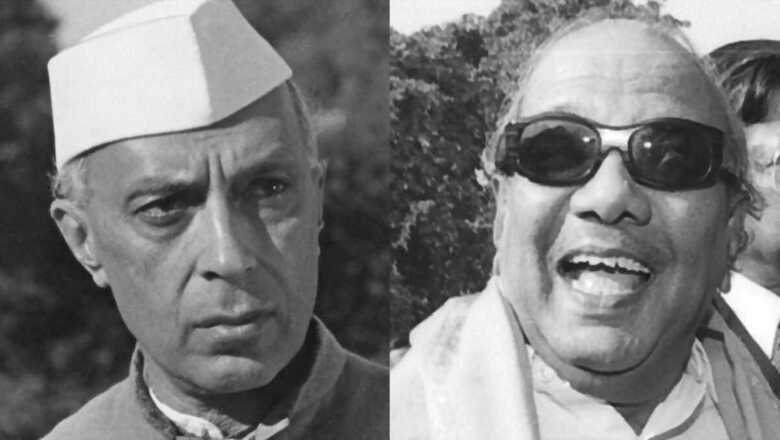
views
Former Chief Minister of Tamil Nadu M Karunanidhi had expressed his “general acceptance” of the “suggested solution” by the Centre to hand over Katchatheevu Island to Sri Lanka but said that he won’t take a public stand in favour of it due to political reasons. This was after the then Foreign Secretary Kewal Singh met the chief minister on June 19, 1974, in Madras (now Chennai).
Documents from the Ministry of External Affairs in possession of News18 now reveal these facts. These documents also reveal the opinion of the then Prime Minister Jawaharlal Nehru over the island.
“I attach no importance at all to this little island and I would have no hesitation in giving up our claim to it. I do not like matters like these pending indefinitely and being raised again and again in Parliament,” said Nehru’s noting dated May 10, 1961, in the document.
Prime Minister Narendra Modi has made the Katchatheevu issue a major one as he has attacked the Congress government for compromising with India’s territorial integrity by ceding the island to Sri Lanka in 1974 as part of an agreement. PM Modi said DMK leaders keep writing to him to get back the island but do not attack their INDIA bloc partner Congress for ceding it in the first place.
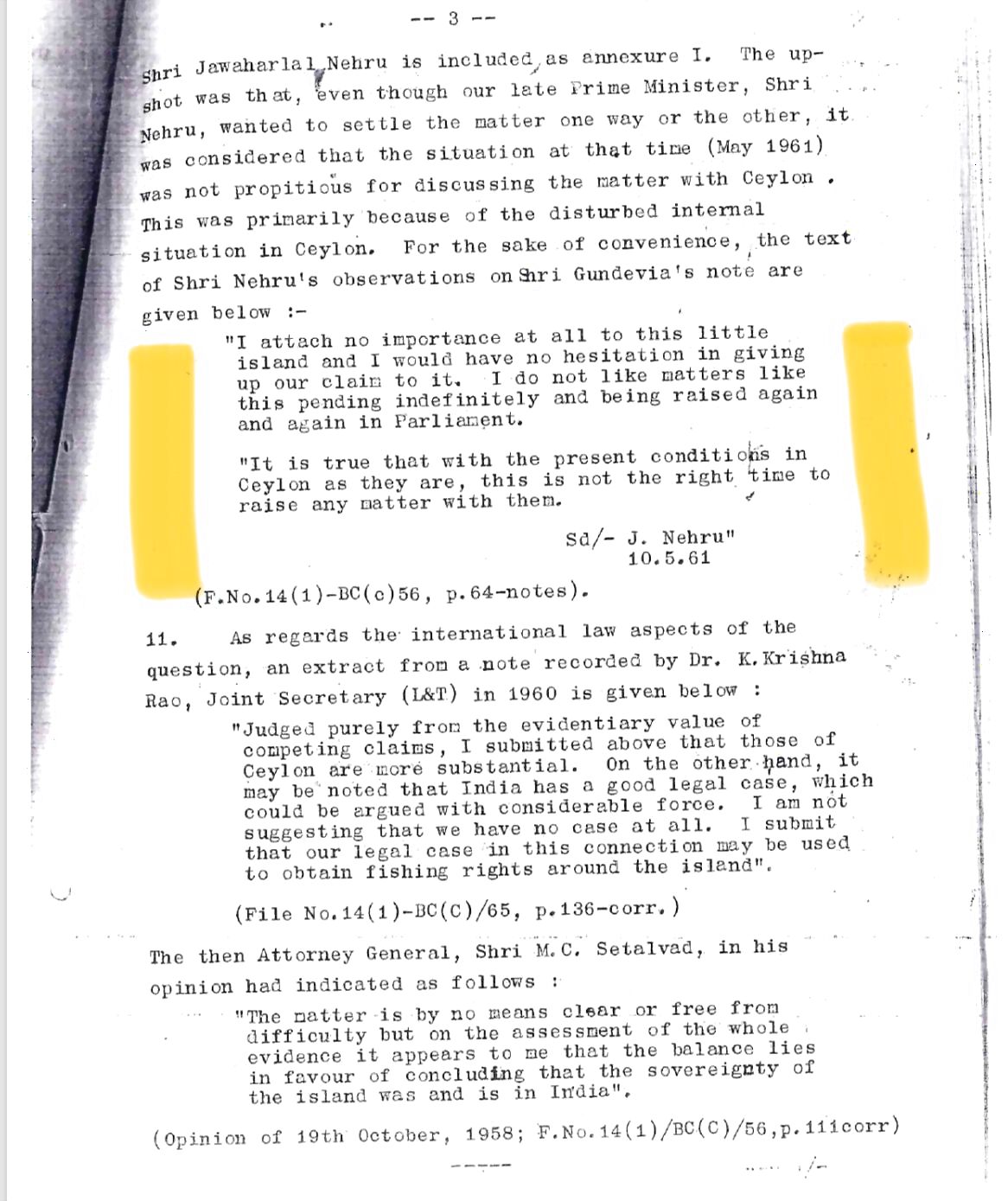
The MEA document reveals that while DMK had launched protests against ceding the island in 1974, party chief Karunanidhi had accepted the Centre’s proposal.
“On the substance of the proposal, the Chief Minister indicated that he was inclined to accept the suggested solution…the Chief Minister having once again signified his general acceptance of the suggested solution, said that, for obvious political reasons, he could not be expected to take a public stand in favour of it,” the documents say about foreign secretary’s meeting with the CM.
The document says the chief minister assured the foreign secretary that he would help keep the reaction “low key” and would not allow it to be played up.
“Foreign secretary appreciated this gesture and stressed that nothing should be done to embarrass the Central Government or turn the affair into an issue between the Centre and the state,” the documents say. They add that the Tamil Nadu government had been “kept informed throughout the negotiations with Sri Lanka”. The foreign secretary, in that meeting, had also thanked the chief minister for favouring him with the views of the Tamil Nadu government and said he would report to the foreign minister and prime minister about his talks with the chief minister.
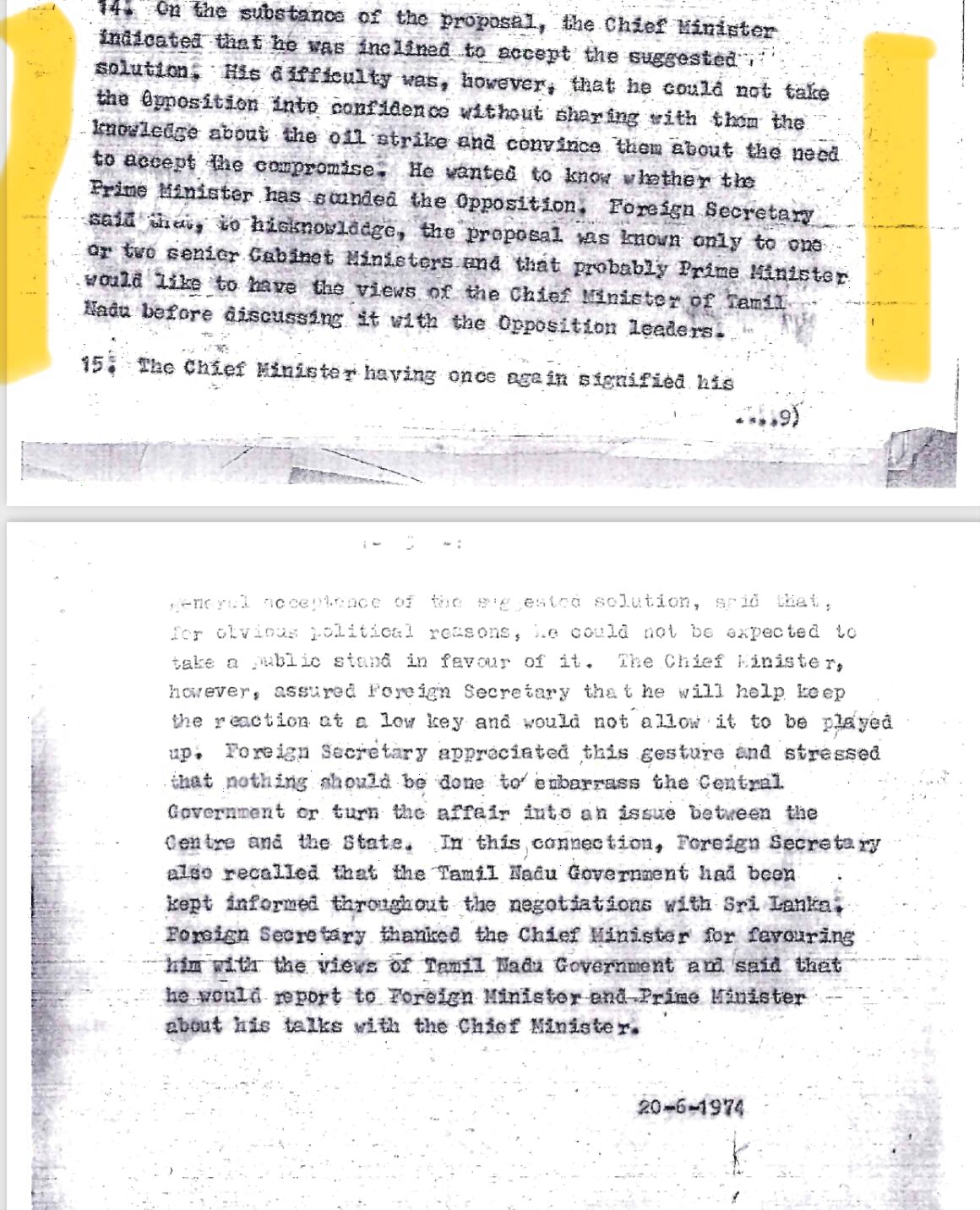
In this meeting, Karunanidhi, however, told the foreign secretary about his “difficulty” that he could not take the opposition into confidence without sharing with them the knowledge about the oil strike and convince them about the need to accept the compromise. The CM wanted to know whether then PM Indira Gandhi had sounded the opposition.
“Foreign secretary said, to his knowledge, the proposal was known only to one or two senior Cabinet Ministers and that probably the Prime Minister would like to have the views of Chief Minister of Tamil Nadu before discussing it with the opposition,” the documents reveal.
The chief minister also wanted to know if any mass hysteria had been built in Sri Lanka over Katchatheevu.
“Foreign secretary said that the controlled press in Sri Lanka, unlike that of India, could whip up public feeling on the subject and make a solution difficult to attain.”
The foreign secretary also said that various suggestions had been mooted by the Indian side — like a condominium, a line cutting through the island, and a line skirting the island. “But none of this is acceptable to Sri Lanka,” the foreign secretary told the CM. At one stage, the Tamil Nadu chief secretary suggested that the strong feelings prevalent in the state could help strengthen the central government’s bargaining posture.
“Foreign secretary said this had not been lost sight of but apparently it has had no effect on the Sri Lankan side,” the documents say.
Interestingly, the Centre’s then Attorney General, MC Setalvad, in his opinion to the Centre on October 19, 1958, had said: “…it appears that the balance lies in favour of concluding that the sovereignty of the island was and is in India.”











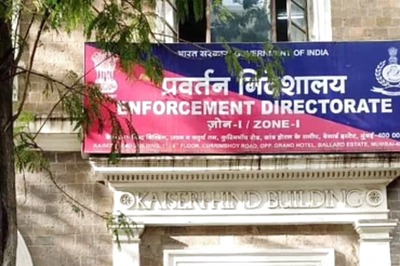
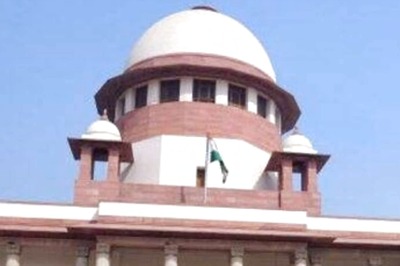
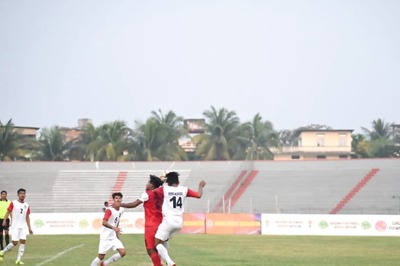
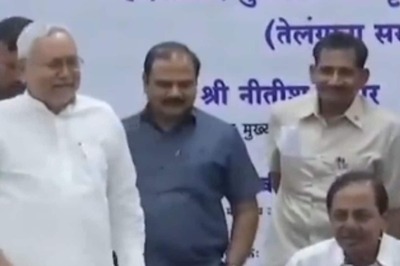


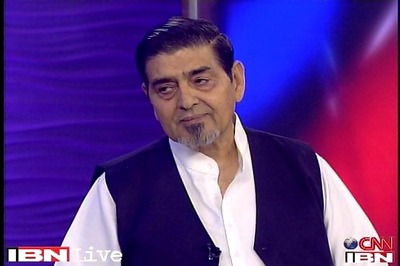
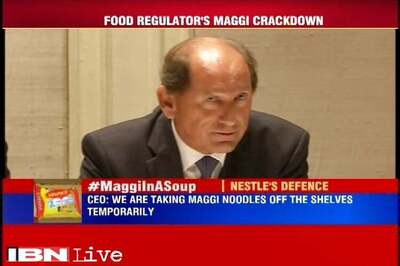

Comments
0 comment